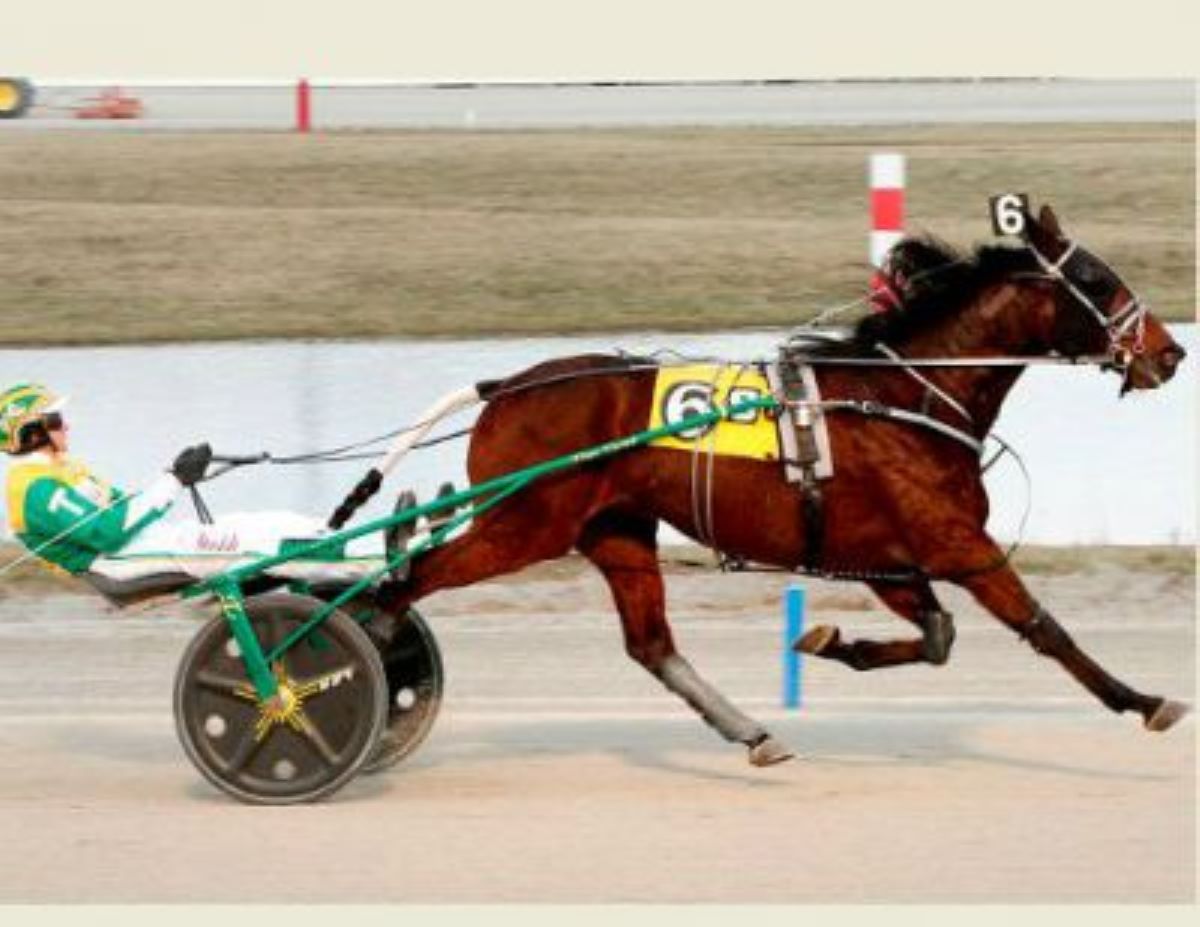PETA-Backed Harness Racing Bettor Gets $20K Settlement in Lawsuit Over Doped Horse
Posted on: August 13, 2020, 12:32h.
Last updated on: August 13, 2020, 08:49h.
In what could be a groundbreaking settlement, an Illinois bettor received $20,000 from an owner and a trainer of a standardbred horse that failed a drug test. That horse won a harness race more than four years ago that kept the gambler from winning more than $30,000.

Animal welfare organization People for the Ethical Treatment of Animals (PETA) announced the settlement Wednesday, noting the plaintiff, Jeff Tretter, gave $7,500 of his award to a nonprofit organization that rescues racehorses. PETA backed the federal lawsuit.
On Jan. 15, 2016, Tretter used his TwinSpires.com account to bet on the fourth race at the Meadowlands Racetrack in New Jersey. That race was won by Tag Up and Go, and horses that Tretter played in a series of bets finished second through fifth.
Tretter placed wins to win, place, and show, as well as exotics, including the superfecta, which pays out if the bettor correctly picks the order of finish for the first four horses.
Two weeks after the race, the Meadowlands announced that Tag Up and Go failed a drug test for a performance-enhancing drug. The test was administered on Dec. 8, but an article on USTrotting.com noted the results weren’t reported until late January because testing administrators at the Hong Kong Racing Laboratory were away on holiday vacation.
Upon discovery, the Meadowlands announced that Tag Up and Go, as well as other horses trained by Robert Bresnahan Jr., would not be able to race at its tracks for 60 days.
In March 2018, Tretter filed the lawsuit in a New Jersey federal court against Bresnahan and owner J.L. Sadowski, claiming “the illegal entrance” of Tag Up and Go cost him more than $31,800 in winnings for that race.
More Lawsuits to Come?
Typically, when a horse fails a drug test after a race, that horse is disqualified from their finishing spot, and purse money is reallocated to the remaining owners in the race. But those tests take days to complete, and since tracks pay out winning bets moments after races are declared official, it means bettors have had no recourse for recouping lost bets.
In a statement, Tretter said he hopes that can change, even as he said he faced a lot of pushback for pursuing the case.
Bettors must organize and go after the cheats for every verifiable dime that was lost,” he said. “Electronic wagering has given bettors a chance to do just this, and we are talking about millions, if not hundreds of millions, of dollars. Hopefully, my lawsuit will lead the way and give others the confidence to do just that.”
Since Tretter’s lawsuit, various forms of racing have faced more scrutiny for the treatment of horses. That includes standardbreds used in harness racing and thoroughbreds. In March, federal officials charged 27 trainers, veterinarians, and others associated with racing, claiming they collaborated to administer illegal drugs to numerous horses, including multiple graded stakes winning thoroughbred Maximum Security.
David Perle, a media division manager for PETA, told Casino.org he was unaware if similar suits were in the works.
“We hope this precedent-setting case will open the door to many of them,” Perle said in an email. “Online gambling means bettors have verifiable records, and we agree with Mr. Tretter that everyone who lost money on a race in which horses were illegally drugged should hire a lawyer right now.”
PETA Had ‘No Evidence’
While PETA and Tretter claim victory, the settlement dismisses the case against Bresnahan and Sadowski, and neither acknowledge any wrongdoing in the matter.
A lawyer for Bresnahan told the Associated Press Wednesday that PETA’s influence made it a “David vs. Goliath” case.
“It was rough for us to defend this case on all fronts because of the amount of money that PETA was pouring into it,” Andrew Benedict said. “It shows they had no evidence of criminal wrongdoing, or they wouldn’t have settled so cheaply.”
Related News Articles
Most Popular
LOST VEGAS: The Foster Brooks Robot at MGM Grand
Bally’s Sets Date for Tropicana Las Vegas Implosion & Party
Most Commented
-
VEGAS MYTHS RE-BUSTED: You Don’t Have to Pay Resort Fees
— August 2, 2024 — 16 Comments -
VEGAS MYTHS RE-BUSTED: Elvis Was a Straight-Up Racist
— August 9, 2024 — 11 Comments -
ANTI-SOCIAL BEHAVIOR: Vegas Casino Buffet Stunt in Poor Taste Goes Viral
— August 16, 2024 — 7 Comments -
VEGAS MYTHS RE-BUSTED: The Strip Tried Appealing to Families and Failed
— August 23, 2024 — 7 Comments
















No comments yet